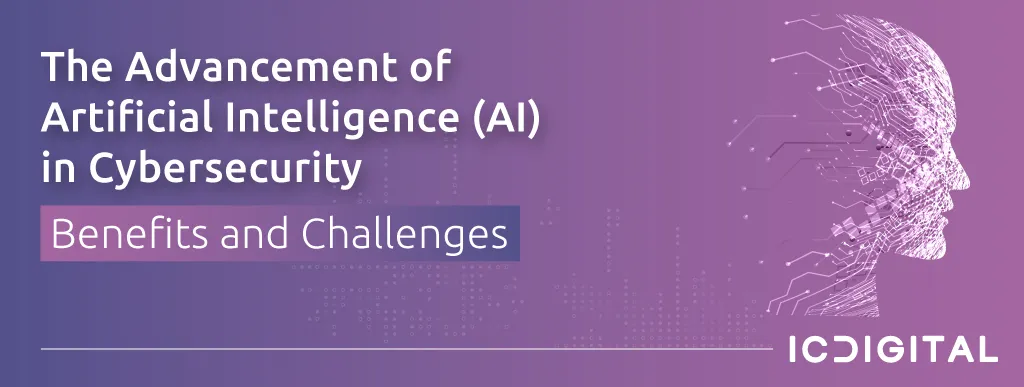
The Advancement of Artificial Intelligence (AI) in Cybersecurity: Benefits and Challenges

In today's world, where technology plays a vital role in our daily lives, it's no surprise that cyber threats are becoming more and more sophisticated. This has made the application of Artificial Intelligence (AI) in the field of cybersecurity increasingly important in recent years. The potential benefits of AI in cybersecurity are numerous and can help organisations stay ahead of cyber threats by detecting and mitigating them in real time.
Threat Detection with AI
One of the key areas where AI is being utilised in cybersecurity is threat detection. AI algorithms can analyse vast amounts of data in real time, enabling them to identify potential threats that would otherwise go unnoticed. Machine learning algorithms, for instance, can be trained to recognize patterns of behaviour that are indicative of a cyberattack. This includes analysing logs, network traffic, and system data to flag any unusual or suspicious activities.
These machine-learning algorithms can identify the most subtle of anomalies and threats that might be overlooked by human experts. This can be especially helpful in detecting zero-day attacks, which are new and previously unknown threats. By flagging these threats for further investigation, AI can help security teams respond to them more quickly and effectively, reducing the impact of a breach.
Threat Mitigation with AI
Another area where AI is being utilised in cybersecurity is in threat mitigation. AI algorithms can be used to automate many of the manual processes involved in responding to a cyber threat, such as isolating infected systems and deploying patches. This can significantly speed up the process and allow security teams to respond more quickly and efficiently, reducing the impact of a breach.
For example, an AI system can analyse the network traffic and detect a malware infection. It can then automatically isolate the infected device and deploy patches to prevent the spread of the malware to other systems. This can help prevent the attacker from gaining access to sensitive data or disrupting business operations.
Challenges of Using AI in Cybersecurity
Despite its potential benefits, the use of AI in cybersecurity is not without its challenges. One of the main challenges is ensuring that AI algorithms are free from bias and are making decisions in a fair and ethical manner. This is particularly important in areas such as threat detection, where AI algorithms may be making decisions about which events to flag as threats based on patterns of behaviour.
If an AI algorithm is trained on biased data, it can lead to unfair and inaccurate decisions. For example, if an AI algorithm is trained on data that only represents a specific demographic, it may not be able to identify threats from other demographics accurately. This can result in false positive or false negative results, leading to either overreaction or underreaction to a threat.
Another challenge is ensuring that AI algorithms are transparent and explainable. This is important for organisations to understand why a certain event was flagged as a threat and for auditing purposes. It also helps to ensure that the decision made by the AI algorithm is fair and ethical.
Takeaway
In conclusion, AI has the potential to revolutionise the field of cybersecurity by enabling organisations to detect and respond to threats more quickly and effectively. However, it is important to address the challenges associated with AI, such as ensuring that algorithms are free from bias and transparent, in order to maximise its potential benefits. By addressing these challenges, organisations can leverage AI to enhance their cybersecurity defences and stay ahead of the constantly evolving cyber threats.
